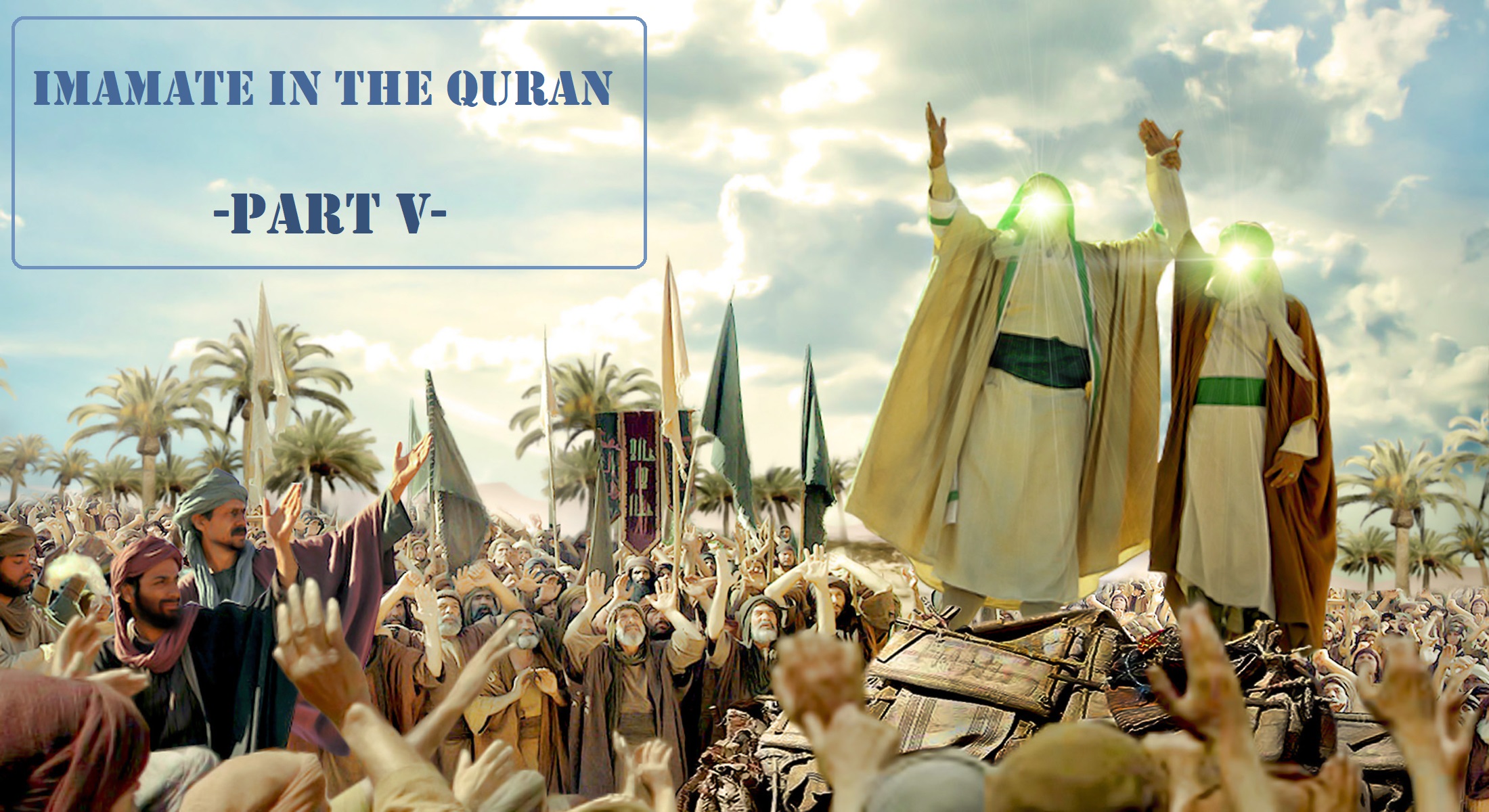UNPACKING THE MOST INTRIGUING QUESTIONS IN THE QURAN
Tuesday 12 May 2020 (19th Night of Ramadan 1441)
Ahlul Bait (a.s) Masjid, Ottery, Cape Town
Mowlana Syed Aftab Haider
D. HOW IS THE JOB OF PROPHETHOOD DIFFERENT TO IMAMAT IN THE QURAN?
The question which may come in the mind at this point is that this whole discussion so far goes back to Prophethood (Nubuwwat), and therefore we are struggling to see the distinction between Nubuwwat and Imamat as they appear from this discussion to be interchangeable?
To backtrack, you will note the verses referenced above where the Holy Quran uses the term Imam for non-Prophets, in the positive and negative sense. This therefore proves that we cannot claim that the status of Imamat in the Holy Quran is for Prophethood and nothing else.
One critical point we missed up to now is the establishment of Prophethood (Nubuwwat) in the Holy Quran. The status of Prophethood (Nubuwwat), and the job responsibility of a Prophet (Nabi) is that of bringing the news. Rasul means messenger, who brings the message.
The principle job of a Prophet is to convey the divine message of Almighty Allah (SWT) to the people. Verse 17 of Surah Yaseen (chapter 36 of the Holy Quran) refers:
وَمَا عَلَيْنَا إِلَّا الْبَلَاغُ الْمُبِينُ
And our duty is only to proclaim the clear Message.
There is no responsibility on the Prophet beyond this. Their responsibility is the successful delivery of the divine message. Whether people follow the message or not is outside the boundaries of the job description of the Prophet in his capacity as the Nabi.
SOME PROPHETS ATTAINED THE STATUS AND RESPONSIBILITY OF IMAMAT
To take this point further, some Prophets (not all) also achieved the status of Imamat, Almighty Allah (SWT) commands them to lead and guide people. This is a different responsibility to Nubuwwat, for which the responsibility on Prophets were to convey the divine message to the people.
Leadership and guidance, and the ESTABLISHMENT of that message on social levels where the Holy Quran explains the purpose of Prophethood to uphold justice. Now, upholding justice is possible by leadership. Of course, in the pre-Islamic era and during the time of our Nabi Muhammad (SAWA), Nubuwwat and Imamat was shared. What this means is that the Nabi is the Nabi and at the same time (not always) he is also an Imam, meaning he has attained that status of leadership.
This means that the Prophet who reached the status of Imamat does not only convey the message, but rather, he takes it further to establish the message as well. He does not only convey the message of Tauheed (as a Prophet), but rather, he fights with the idols too (as an Imam). This role that he fulfils as the Imam is not fundamentally the role of the Nabi, whose mission is to convey the message.
Therefore, when the Holy Quran speaks about the establishment of the divine message, and the implementation of the divine revelation (wahi) on the earth, it is very clearly from the status of Imamat which Rasulullah (SAWA) attained.
Imamat is explained widely and in great detail in the Holy Quran. The issue is that in most cases, the Holy Quran is referring to previous nations where Nubuwwat and Imamat were shared in that era. That is the reason for people incorrectly confusing Nubuwwat and Imamat to be the same thing, when in fact they are two different responsibilities.
NABI IBRAHIM (A.S) ATTAINED IMAMAT LONG AFTER BEING A PROPHET
Verse 124 of Surah Baqarah (chapter 2 of the Holy Quran) noted earlier explains the tests which Nabi Ibrahim (a.s) had to go through as a Prophet. He was appointed as Imam only after graduating from these tests. Now, if Nubuwwat and Imamat were the same, then it does not make sense for him to be declared an Imam, as it seems to be a redundant statement.
What this would then mean is that Nabi Ibrahim is being appointed as a Nabi when he is already a Nabi. He achieved something which he already achieved and was seeking something which is already there. Hence, this verse shows that Imamat was the next level of achievement for Nabi Ibrahim (a.s).
Nabi Ibrahim (a.s) endured tests when he went in the fire of Nimrod and when he broke the idols and he was commanded by Almighty Allah (SWT) to slaughter his son, Nabi Ismail (a.s). Only after having successful completed all these tests, did Almighty Allah (SWT) appoint Nabi Ibrahim (a.s) as an Imam. Imamat is therefore not equivalent to Nubuwwat, which is the critical point to understand.

